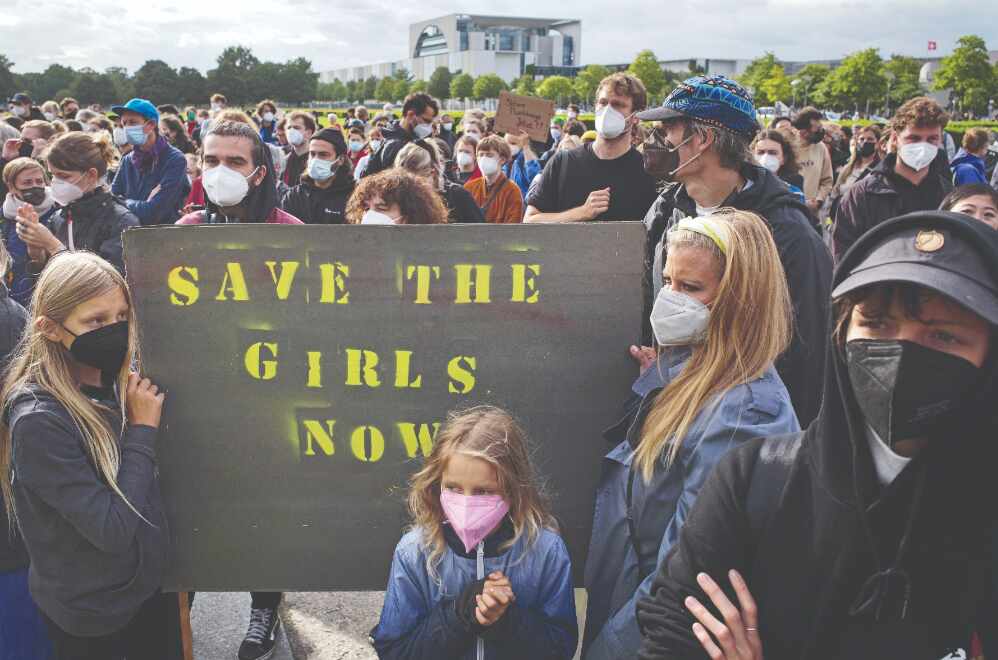Taliban announce 'amnesty,' urge women to join government

Kabul: The Taliban declared an amnesty across Afghanistan on Tuesday and urged women to join their government, seeking to convince a wary population that they have changed a day after deadly chaos gripped the main airport as desperate crowds tried to flee their rule. It has also pledged to honor women's rights but within the norms of Islamic law.
Following a blitz across Afghanistan that saw many cities fall to the insurgents without a fight, the Taliban have sought to portray themselves as more moderate than when they imposed a brutal rule in the late 1990s. But many Afghans remain skeptical.
The promises of amnesty from Enamullah Samangani, a member of the Taliban's cultural commission, were the first comments on how the Taliban might govern on a national level. His remarks remained vague, however, as the Taliban are still negotiating with political leaders of the country's fallen government and no formal handover deal has been announced.
The Islamic Emirate of Afghanistan with full dignity and honesty has announced a complete amnesty for all Afghanistan, especially those who were with the opposition or supported the occupiers for years and recently, he said.
Other Taliban leaders have said they won't seek revenge on those who worked with the Afghan government or foreign countries.
But some in Kabul allege Taliban fighters have lists of people who cooperated with the government and are seeking them out.
Samangani addressed the concerns of women, saying they were the main victims of the more than 40 years of crisis in Afghanistan.
"The Islamic Emirate of Afghanistan is ready to provide women with environment to work and study, and the presence of women in different (government) structures according to Islamic law and in accordance with our cultural values, he said.
That would be a marked departure from the last time the Taliban were in power, when women were largely confined to their homes. Samangani didn't describe exactly what he meant by Islamic law, implying people already knew the rules.
Echoing the same sentiment, Taliban spokesman Zabihullah Mujahid has pledged to honor women's rights, but within the norms of Islamic law. Women can work in the health sector and other sectors "where they are needed", he said.
Mujahid also said the Taliban wanted private media to remain independent, but stressed journalists should not work against national values.
Mujahid also stressed that Afghanistan would not allow itself to harbor anyone targeting other nations.
"The Islamic emirate is pledging to all world countries that no threat will be posed to any country from Afghanistan," Mujahid told reporters at a press conference in Kabul in which he announced an Islamic government will be established in Afghanistan soon.
"We want to establish a government that includes all sides," he said, adding that they want an end to the war.
"We don't want any internal or external enemies. We do not have enmity toward anyone and based on our leader's orders we have pardoned everyone," he said.
Meanwhile, the capital of Kabul remained quiet for another day as the Taliban patrolled its streets and many residents stayed home, remain fearful after the insurgents' takeover saw prisons emptied and armories looted. Kabul's international airport, the only way out for many, reopened to military evacuation flights under the watch of American troops.



